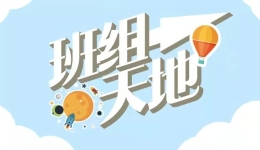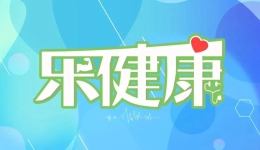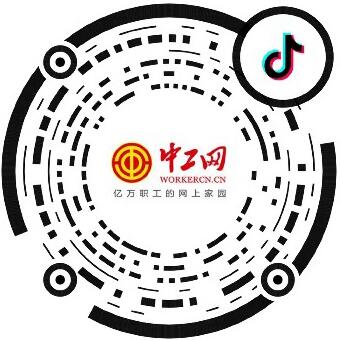Original title: Never forget Xing'an Red Rhododendron
Zhang Wanyin
This is a high school for the children of large state-owned enterprises. In the 1980s, this enterprise's flagship products sold well at home and abroad. The decision-makers of enterprises are very wise. If they have money, they should invest in education first. So the towering four storey pigeon grey teaching building rose from the ground, standing at the southern foot of the Little Khingan Ridge, the northern suburb of the factory, where the red rhododendron bloomed.
In 1981, I graduated from a normal university and came to this school to teach. I served as the head teacher of Class 18, Grade 1. The classroom of this class is on the east side of the northernmost end of the third floor, next to the playground. To the east of the playground, a dam cuts off the yearning for the campus of clear water and green mountains.
Since then, I have started a 10 year teaching career, teaching Chinese in two classes of Grade One. At the beginning, I took Chinese teaching materials as the standard, and did not dare to go any further. For a long time, I feel that there are only 20 articles in one Chinese book for more than 150 days in five months of a semester, and the content is too little. The Chinese teaching materials of that era emphasized ideological and political education, which was more classic than contemporary, let alone interesting, and it was difficult to attract junior high school students with extensive hobbies and active thinking. My intuition tells me that Chinese teaching can also break through the scope of textbooks and introduce fresh water. After teaching textbooks well, I gradually began to carry some "private goods" in my teaching: for example, once a month, I went to the school library to read collectively, once a week, I had a reading class in which students brought their own newspapers and books, and students recited an ancient poem every day. At that time, I thought that this would arouse students' interest in learning Chinese. Now, it is actually the bud of the unconscious Chinese teaching reform.
Students' favorite activity is "One poem every day", which is to recite a classical poem every morning before class. At the beginning, it was mainly composed of five or seven character quatrains. I collected pearls from various classical poems and copied them on the blackboard by the representative of Chinese class; In Chinese class, I explained the main idea of the poem. The next morning, I checked the effect of recitation. If I can't recite it, I will be fined one more poem; Two poetry contests will be held at the middle and end of the term to see who can recite well and much more. Based on the scores of the two poetry contests, the "king of reciting poetry" of this semester will be selected and rewarded.
These older children who feed on Tang and Song poetry, if they were still alive today, each of them could participate in the "China Poetry Conference" competition. The outstanding effect of this activity is to let students have a glimpse of Chinese traditional culture through classical poetry, stimulate students' aesthetic awareness and taste, and cultivate their interest in poetry appreciation and poetry creation. Later, one student became a famous local poet, and another student admired and admired me when he saw that I spoke every poem in a coherent way. After class, he said to me, "When I grow up, I want to be a teacher, just like you." Later, he went to the podium as he wished and nurtured peach and plum.
After the second year of junior high school, I saw that the students' interest was high, and their internal drive to learn Chinese was stimulated. They were given the opportunity to raise the bar - to recite famous passages in ancient Chinese, such as Wu Jun's "Book with Zhu Yuansi" in the Southern Dynasty, Li Bai's "Preface to Spring Banquet from My Brother's Peach and Plum Garden" in the Tang Dynasty, and Zhang Dai's "Snow in the Lake Pavilion" in the Ming Dynasty.
One late spring afternoon, I told the students a paragraph of "Spring outing" in The Analects of Confucius: "In late spring, there are five or six champions, six or seven children, who are bathing in Yi, dancing rain in the wind, singing and returning." At this time, on the green trees near the playground outside the window, swallows are calling for spring, as if they are tempting us - the book is buried in the sun, so it is better to give up and look for spring. When I read the desire in the eyes of students, I remembered the "on-site teaching method" of Liu Wendian, a professor of Southwest United University - teachers and students sitting on the campus grass, talking about "Moon Ode" to a round of bright moon. I had a brainwave and said, "How about going to the river to experience it?" The words hit a warm cheer and a reappearance of a spring outing more than 2000 years ago.
It was more than two o'clock in the afternoon, which was the hottest time. Swallows on the green trees were surprised to see that a small group of people climbed over the dam and went down to the beach. The river is clear and rippling, and the sun is splashing down. The water is shining brightly, reflecting a red smiling face. On the other side of the river, under the blue sky and white clouds, the green grassland on the hillside is in full bloom with Xing'an red azaleas.
The beautiful scenery of nature makes the students relaxed and happy. They are excited to play near the shallow water, blow on the dam, and then return to the classroom with happy songs. They thus experience the freedom of body and mind and the poetic realm in life. In fact, the paragraph "Children's Crown Bathing in the Wind and Rain Dance" has a deeper meaning: it is a vivid way to describe the harmonious scene of the road in the world, symbolizing the ideal social life of peace, stability, frankness and nature. This meaning may be beyond the understanding ability of junior high school students, so I follow the pedagogical warning not to over develop students' intelligence, which was not said at that time. Let students pursue it later.
Ten years later, in order to pursue my ideal, I left the campus by the Qingshui River. Along the way of mountains and waters, the footprints are getting farther and farther, but the pigeon gray building always stands in my heart. I will never forget the starting line of youth in the life competition field, the students' dark eyes and red smiling faces, and the blooming Xing'an red azaleas on the green grass



















